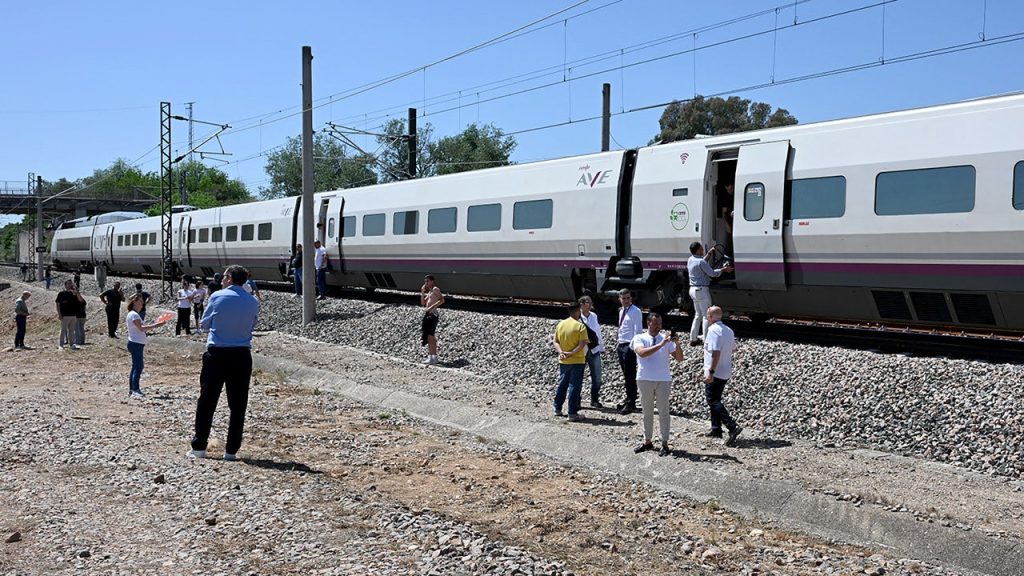A significant power outage disrupted both Spain and Portugal on Monday, prompting the Interior Ministry of Spain to declare a state of emergency. The outage affected traffic lights, subway systems, and various essential services, stoking panic among residents. By the evening, power had been restored to approximately half of Spain, but officials indicated complete restoration would take longer. Experts attributed the outage to extreme temperature variations causing instability in the interconnected European grid.
| Article Subheadings |
|---|
| 1) Overview of the Power Outage |
| 2) Response from Authorities |
| 3) Impact on Transportation Services |
| 4) Residents’ Reactions |
| 5) Restoration Efforts and Future Implications |
Overview of the Power Outage
The power outage that struck both Spain and Portugal began around 12:15 p.m. local time and was marked by a dramatic drop in power demand from approximately 27,500 megawatts to near 15,000 megawatts. Officials indicated that the outage affected nearly half of Spain’s electrical grid. The Interior Ministry’s swift declaration of a state of emergency highlighted the severity of the situation, noting that disruptions occurred across multiple sectors including public transport and key services.
Response from Authorities
Both Spain and Portugal’s governments convened emergency cabinet meetings in response to the crisis. Spain’s Prime Minister, Pedro Sánchez, confirmed the outage resulted from a so-called “strong oscillation” within the European grid but emphasized that investigations into the precise causes were ongoing. Officials from Portugal confirmed no evidence of a cyberattack, although they warned that the issue was being classified as an extraordinary atmospheric phenomenon.
Impact on Transportation Services
The outage led to widespread transport disruptions. In Madrid, subway stations were evacuated as trains ground to a halt. Video footage depicted crowded metro platforms with passengers scrambling to exit. Reports indicated that commuter trains in Barcelona were similarly affected. Airports in both countries operated on backup systems, leading to delays in flights as travelers sought information about the status of their journeys.
Residents’ Reactions
Public reaction to the outage ranged from confusion to panic. Many residents described scenes of panic buying in supermarkets, with individuals hoarding essential supplies such as water and food. In Portugal, the Prime Minister, Luís Montenegro, assured the public of ongoing efforts to manage the crisis, emphasizing continuous communication with security and emergency services to maintain essential services. The unpredictability surrounding the outage intensified public anxiety, contributing to a sense of urgency among residents.
Restoration Efforts and Future Implications
Electricity suppliers worked diligently to restore power across both nations, with reports indicating that by 10:30 p.m. local time, 48% of the demand had been recovered. The process involved the gradual re-energization of substations as they connected with generating units. However, officials cautioned that full recovery could take 6-10 hours. Experts have pointed to the need for further investigation to prevent similar occurrences in the future, emphasizing the importance of reinforcing the stability of the interconnected European power grid.
| No. | Key Points |
|---|---|
| 1 | State of emergency declared following major power outage. |
| 2 | Power demand plummeted drastically within minutes. |
| 3 | Transport services, including subways and trains, were heavily impacted. |
| 4 | Residents reacted with panic buying and heightened anxiety. |
| 5 | Authorities are working on restoring power and preventing future outages. |
Summary
The unprecedented power outage in Spain and Portugal has underscored the vulnerabilities within the European electrical grid. As governments convened to respond to the crisis, the situation led to significant disruptions in daily life, emphasizing the critical need for robust emergency protocols. This event may prompt future discussions on the resilience of national grids and cooperative planning across multiple countries to avert similar incidents.
Frequently Asked Questions
Question: What caused the power outage in Spain and Portugal?
The outage was caused by extreme temperature variations leading to instability in the high-voltage electrical lines, prompting synchronization failures across the interconnected grid.
Question: What barriers did residents face during the outage?
Residents faced significant disruptions to public transportation systems, including metros and trains, and a breakdown in electronic payment systems, contributing to increased panic.
Question: How are authorities ensuring power restoration?
Electricity suppliers are engaging in a gradual process of power recovery, focusing on re-energizing substations and coordinating efforts across the Iberian Peninsula to restore full service.


